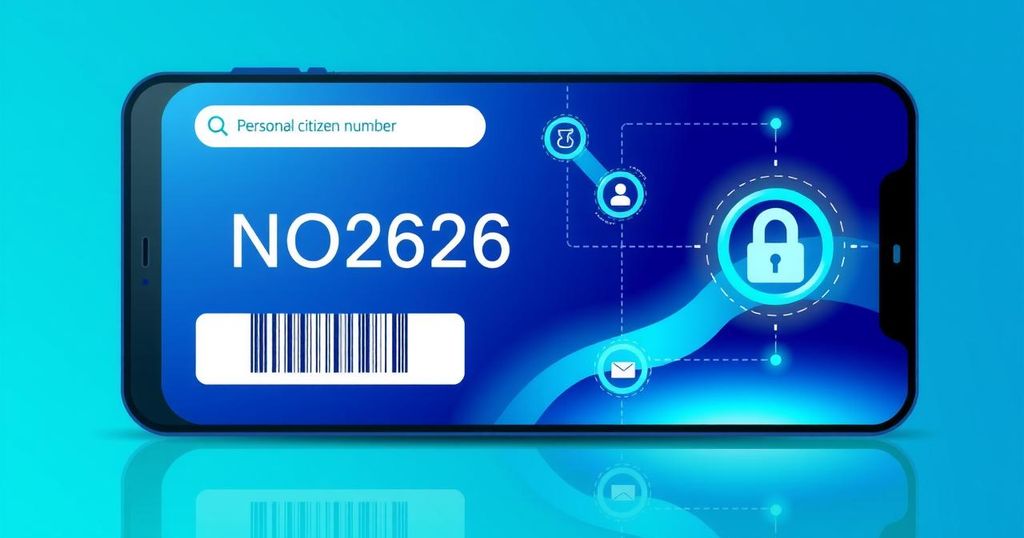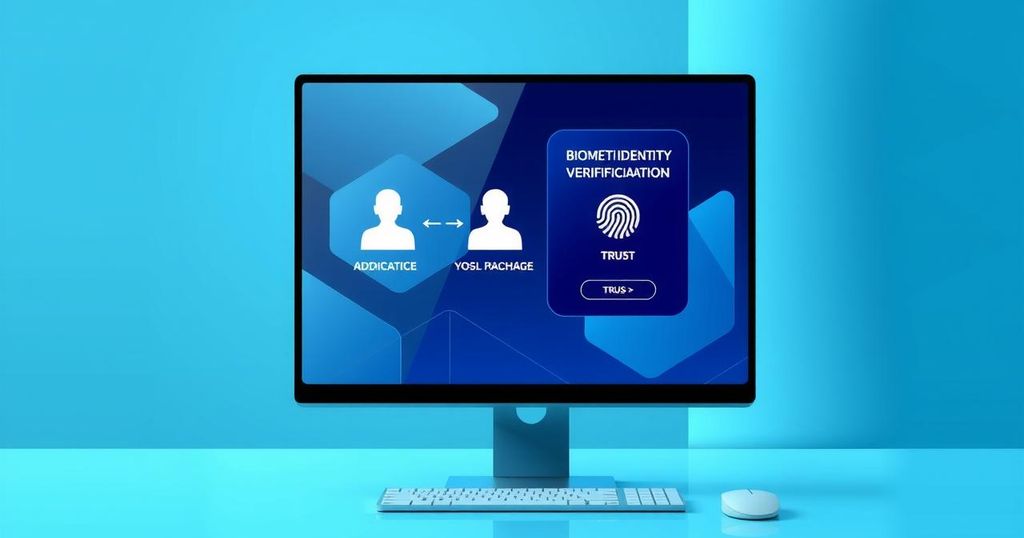Missouri is moving toward enacting its Biometric Information Privacy Act, with three key bills passed in their second readings. These bills aim to regulate how biometric data such as fingerprints and facial recognition can be collected, stored, and used, establishing clear guidelines and requiring explicit consent. The act addresses privacy concerns while offering an enforcement mechanism for violations.
Missouri is inching closer to implementing a biometric privacy law, with three significant bills—House Bill 407, House Bill 500, and Senate Bill 554—having made it through their second readings. This legislative push aims to bring forth the Biometric Information Privacy Act, mirroring Illinois’ established laws on this sensitive issue. The act would place critical regulations on how businesses and organizations handle biometric data.
Amid rising fears surrounding data security and privacy breaches, Missouri’s proposed legislation strives to clarify how biometric data—think fingerprints, facial recognition snapshots, and voiceprints—should be collected, stored, and used. This move is in direct response to increasing demands for robust protections as public awareness grows around these personal data issues.
HB 407 and HB 500 seek to introduce six additional statutory sections aimed at defining “biometric information” and setting out requirements for private entities. Specifically, they would mandate these entities to draft a public policy regarding how they retain and dispose of biometric data, emphasizing accountability and transparency. Meanwhile, SB 554 not only calls for these retention policies but also emphasizes informed consent and imposing stricter rules on data sales and protection standards.
Under these bills, “biometric information” is characterized as any data linked to an individual’s biometric identifier—no matter how it is captured or processed. A critical aspect of the Missouri BIPA is the requirement for businesses to acquire explicit consent from individuals before collecting any biometric data. This is not just about asking; it must be clear and above board, detailing how long data will be kept and why.
In addition to explicit consent, there are rigorous frameworks set out for the retention and final destruction of biometric information. The legislation stipulates that entities holding such data must ensure it is either destroyed after usage or within a year of the individual’s last interaction, whichever comes first, unless a court order mandates otherwise.
SB 554 steps it up by outlining the expectations for companies collecting biometric data, again insisting on publicly available retention policies. Notably, businesses would have to notify individuals—well in advance—about the collection of their data, why it’s taken, and how long it’ll be stored. Should entities disclose this information, written authorization from the individual is a must, along with caveats regarding legal requirements.
The bills also stress that companies can’t just do what they want with biometric data—they’re barred from selling or trading it, and the security measures they adopt must be on par with industry standards for confidential data. Importantly, if a company were to violate these regulations, it couldn’t make providing goods contingent on biometric data sharing unless absolutely necessary. Further, they can’t play favorites with prices based on a person’s data-sharing decisions.
Security isn’t an afterthought either; businesses dealing in biometrics need to have tight security measures in place to ward off potential breaches. The act expects them to utilize top-tier security practices and encryption to keep data safe. And, of course, companies are forbidden from profiting off someone’s biometric data.
What’s particularly noteworthy is how this legislation provides a strong enforcement mechanism. Individuals could pursue legal action against violators, with damages reaching up to $5,000 plus attorney fees and more, if things go south. This could create a serious incentive for compliance and emphasizes how crucial adherence to privacy regulations will become.
Missouri’s BIPA, if enacted, could impact various sectors, particularly those using biometric systems for identity verification, such as retailers and healthcare. These sectors will need to adapt quickly, as noncompliance could lead them into a messy legal quagmire.
While aimed at bolstering privacy for consumers, the proposed act has sparked chatter amongst businesses about the costs tied to compliance and potential litigation risks. Companies will need to carefully assess their biometric practices to ensure they meet the new standards to dodge hefty penalties. In summary, Missouri’s Biometric Information Privacy Act could mark a significant advancement towards enhanced privacy rights at a time when data protection is more critical than ever.
Missouri is advancing its Biometric Information Privacy Act, a proactive legislative effort aimed at regulating the collection and usage of biometric data. Key provisions include explicit consent requirements, retention and destruction policies, and stringent security measures. While this law seeks to protect individual privacy rights, it has raised concerns among businesses regarding compliance costs. Ultimately, its successful enactment could set the stage for a stronger framework of privacy protections across the nation.
Original Source: www.biometricupdate.com





